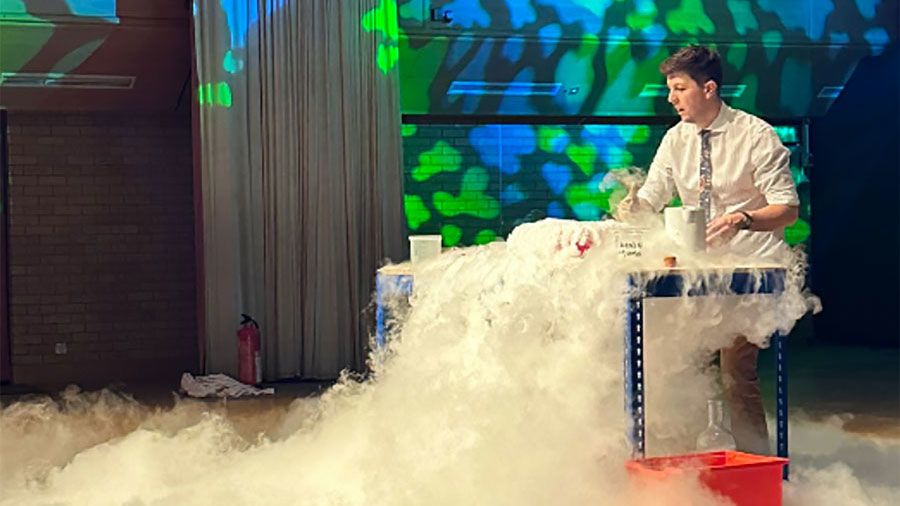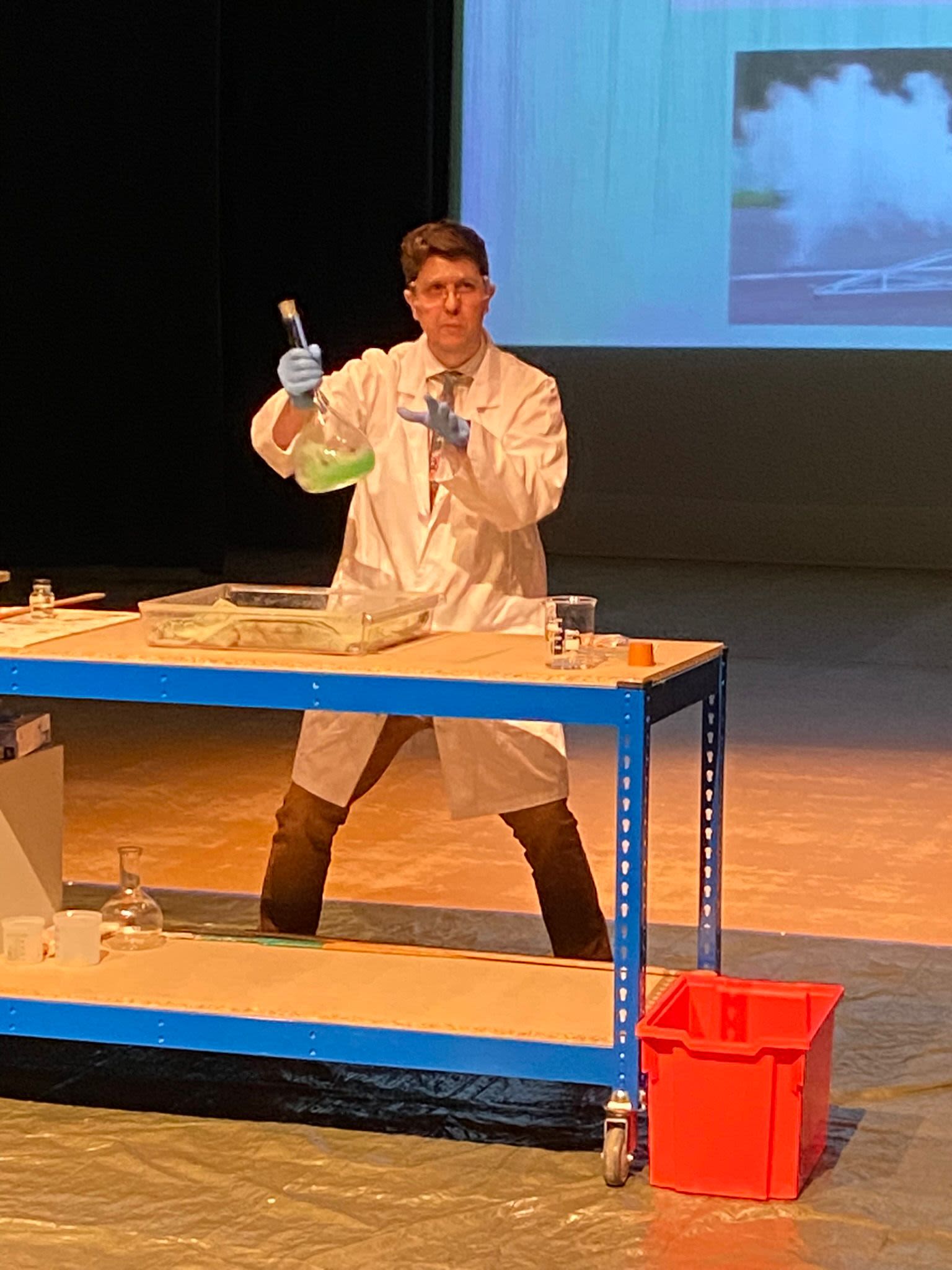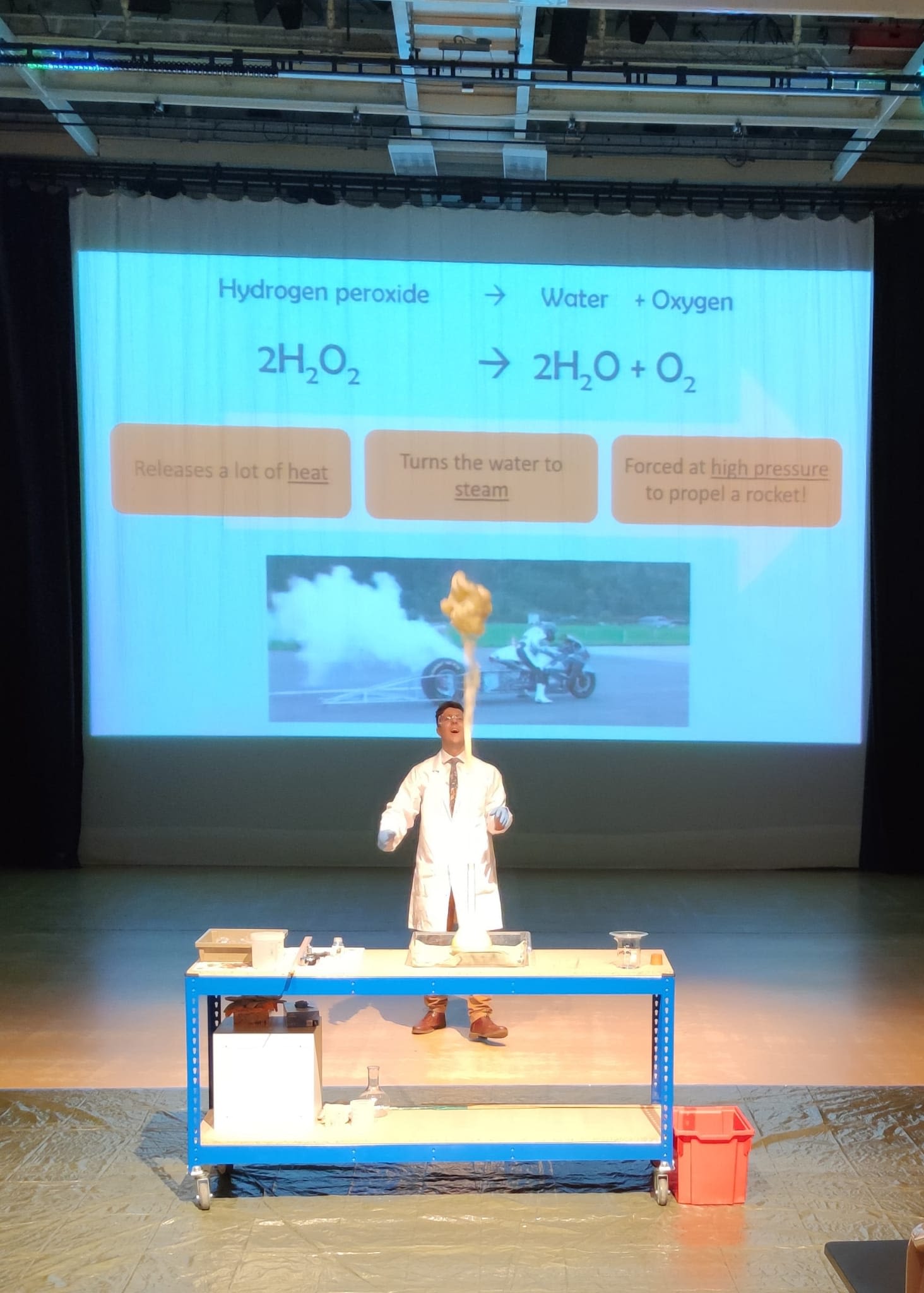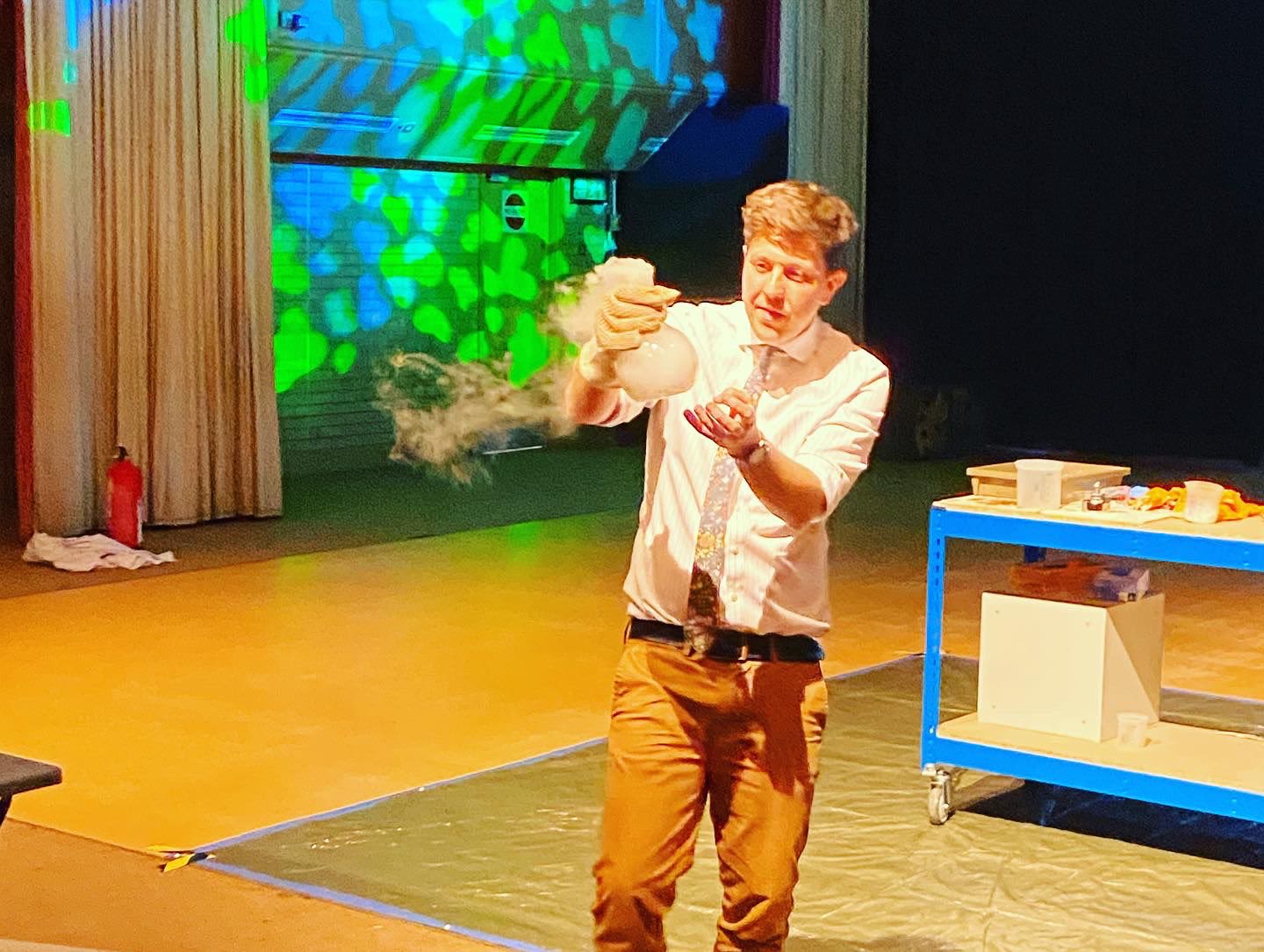

Eureka!
The educational pilot encouraging young learners to find their inner scientist

A Faculty teacher-educator has been working with schools in Cambridgeshire on a new approach to fostering students’ interest in STEM subjects, that focuses on getting them to self-identify as scientists.
Charlie Pettit, who teaches on the Secondary Science PGCE, recently organised an ‘Evening of Science’ at Hinchingbrooke School, located in Huntingdon, for primary school students from the ACES Academies Trust and their parents.
While the event was meant to be an exciting and entertaining introduction to secondary science education, the underlying goal was also to encourage the students to start to see themselves as scientists – and not just people who learn science. Drawing on well-established research, Pettit structured a series of live experiments and investigations into subjects including genetics, climate change and combustion which required the audience to raise questions, float theories and solve problems.
If they come away thinking ‘we saw some science today’ that’s not enough. We need science education to build young people’s confidence and capability as scientists.

As well as a teacher-educator on the Faculty’s PGCE programme, Pettit is both a science teacher at Hinchingbrooke School, and a science lead for the ACES Trust, which encompasses several local primary schools.
This work has given him a unique perspective on science education. He is particularly interested in doing more to target students’ intrinsic motivation: instilling a sense of confidence and competence as scientists at an early age which will encourage them to study science for longer, rather than dismissing the subject as something that they cannot do.
“The sort of introductory presentations children normally get about science, with guys like me bouncing around a stage and doing experiments, can be a lot of fun – but if we want to inspire a lasting interest we need to do more than just provide a spectacle,” Pettit said.
“If they come away thinking ‘we saw some science today’ that’s not enough. We need science education to build young people’s confidence and capability as scientists, because we urgently need a generation of engaged individuals who can solve problems and tackle challenges in these subject areas.”
Pettit argues that often science is taught purely from the perspective of developing knowledge and skills, which he suggests some students find off-putting because they learn to associate it with a specific type of academic mindset. “Good science happens when people relate closely to the subject,” he said. “It requires more than just skills, but empathy, morality, creativity and independence. These should also be qualities we build through science education.”
Teachers should constantly be thinking, how can we make this relatable? Are students thinking for themselves here, or just being told what to think? And do they feel able to do this themselves?
His Evening of Science at Hinchingbrooke, which involved around 150 learners from nine different primary schools, encouraged them to think ‘as scientists’ in this broader sense.
The audience was continually asked questions – starting with what they thought science was and why it was relevant. From there, they examined how science can benefit both humans and ecosystems, and how to make a scientific discovery.
There were also whole-group experiments, including one on the genetics of taste in which participants licked a piece of paper coated with PTC: a chemical with a bitter flavour that roughly 25% of people cannot actually taste at all. A mass-participation workout was conducted to examine the effects of exercise on our muscles, and volunteers were asked to report back on the energy released during an ‘elephant’s toothpaste’ demonstration. This combines hydrogen peroxide, a catalyst, and washing up liquid to create a jet of bubbles that shoots the mixture up into the air.
Many science teachers will recognise these experiments, but they are typically only introduced at a later stage of students’ education when many may have lost interest in the subject. Pettit’s approach is unusual not only because of the younger age group involved, but because the students were continually asked to contribute ideas, feedback and critical thinking.
It draws heavily on self-determination theory (SDT), specifically the work of Richard Ryan and Edward Deci. This suggests that students perform better when their motivation comes from within, rather than from external factors such as rewards or test pressure.

It also identifies three psychological needs that support this ‘intrinsic’ motivation: autonomy, which refers to a sense of control over their behaviour and choices; competence, which is a feeling of effectiveness and capability; and relatedness, including a perception that their work is meaningful.
Trainee teachers on the Cambridge PGCE are taught to focus on these needs early on. “As an approach I’ve always found it really lands in the classroom,” Pettit said. “Teachers should constantly be thinking, how can we make this relatable? Are students thinking for themselves here, or are they just being told what to think? And do they feel able to do this themselves?”
“These are ideas we mapped on to the Hinchingbrooke event. We really wanted students to go home thinking about what they could do as scientists and to have conversations with their parents about it.”

As this implies, Pettit believes that science education at its best happens both within and outside the classroom and should incorporate activities which involve students’ families and the wider community.
He is planning further events with the ACES Trust later this year, and sees primary schools in particular as a natural space for this wider-ranging and more exploratory approach to building identification with the subject.
“You find that in primary schools, children’s classroom experiences interlink much more with their home lives and in a much more dynamic way,” Pettit said. “If we want to develop more intrinsically motivated scientists, I think this is where we need to look. Learning from primary education is also something that all teachers could usefully do.”
Image in this story provided by Charlie Pettit